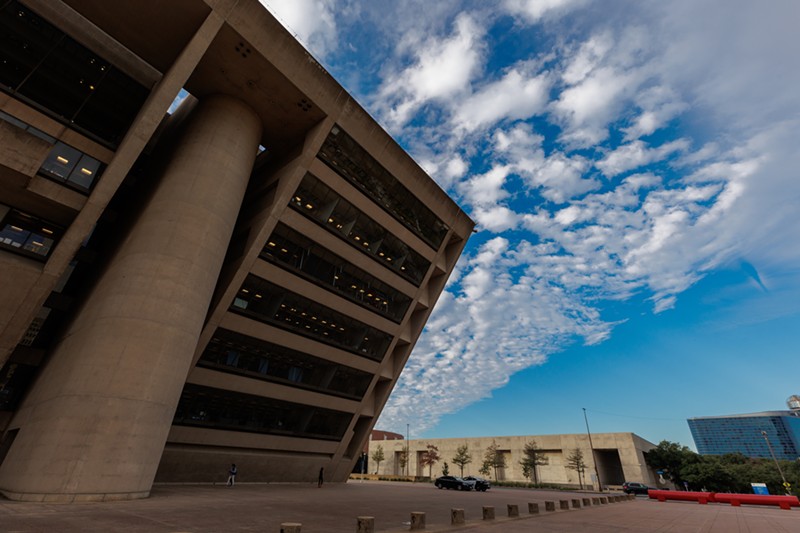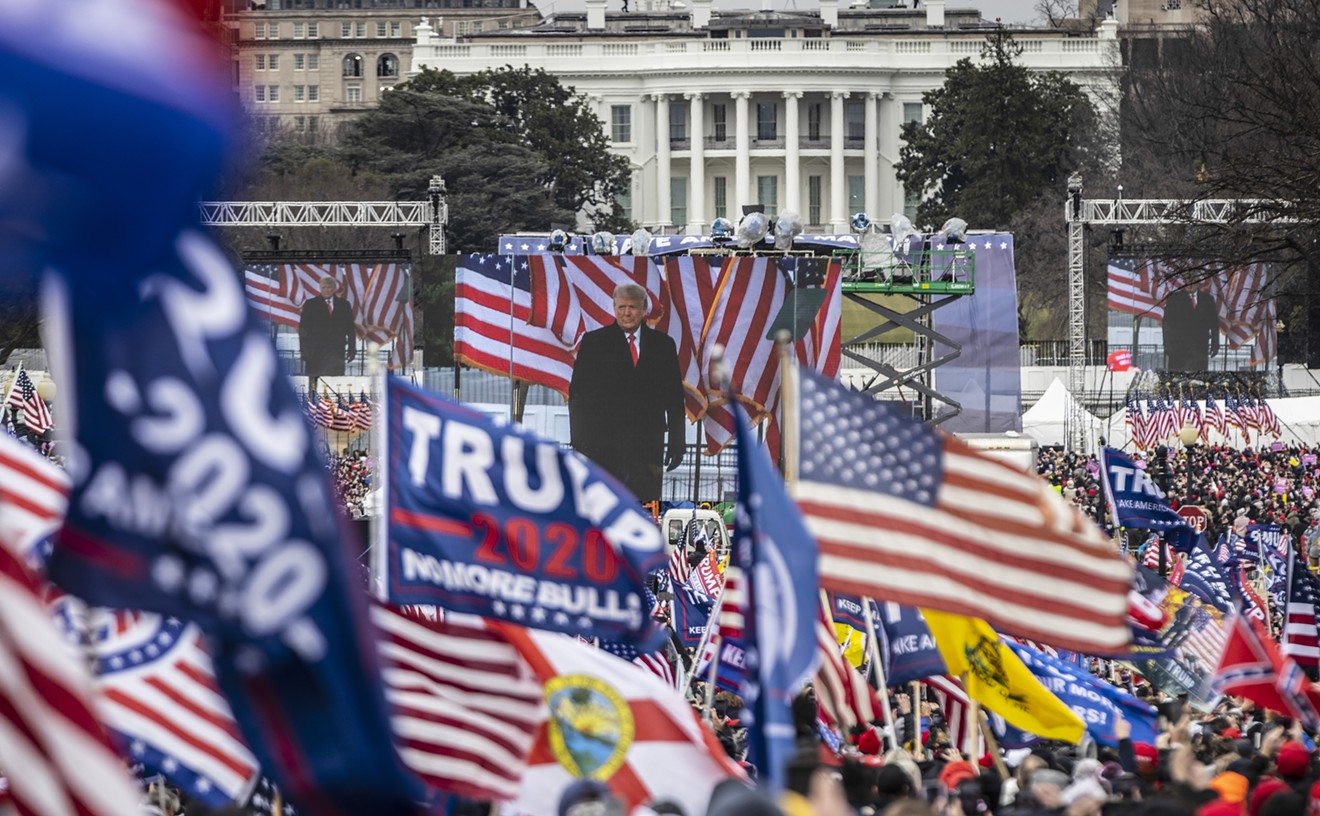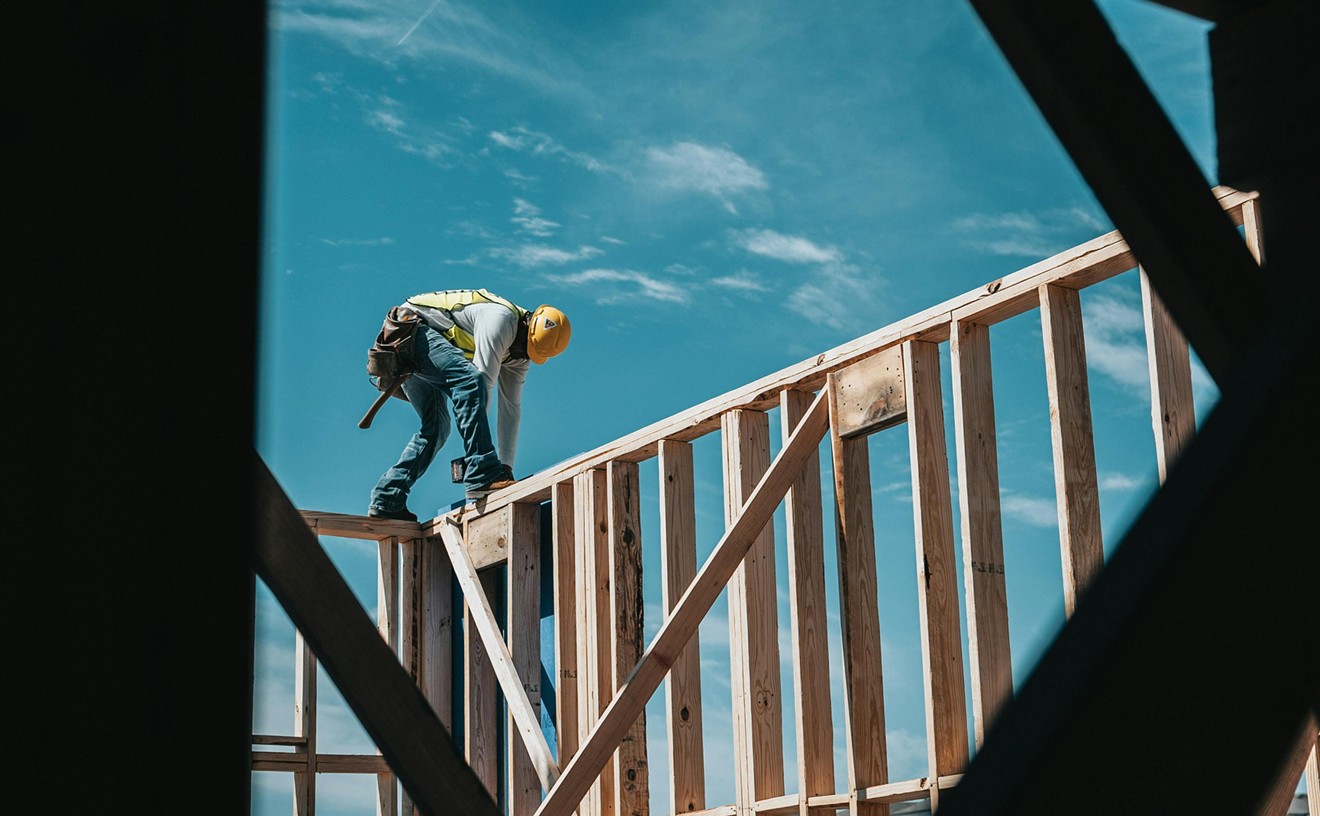The timing of Ground Game Texas' Dallas arrival isn't merely coincidental. The city is in the process of amending its charter. The deadline for proposed amendments was Jan. 19, but residents can still propose changes if they get enough signatures on a petition.
Julie Oliver, executive director and cofounder of Ground Game Texas, said the organization has launched a petition campaign to amend the city charter to include elements that would decriminalize possession of misdemeanor amounts of marijuana in Dallas. Additionally, the amendment would prevent the city from paying for THC concentration tests. In 2019, Texas passed House Bill 1325, which legalized hemp in the state.
Hemp looks and smells identical to marijuana. That’s why the amendment would also eliminate smell as a probable cause to search someone or their vehicle. “We don’t want police to be violating civil liberties when people could have a perfectly legal substance on them,” Oliver, who is from South Oak Cliff, said. The amendment would also require the police to report to the City Council and Community Police Oversight Board quarterly about the misdemeanor marijuana arrests and citations they are still issuing. This would include demographic information as well.
Other proposed changes to the charter include increasing the size of City Council, longer term limits, more pay for council members and moving local elections from May to November, according to The Dallas Morning News.
Ground Game Texas needs 20,000 signatures from registered Dallas voters, but it’s hoping to collect closer to 35,000. They’re collecting more signatures than needed in case unregistered voters or residents from other cities sign the petition.
Asked why the group is taking on the effort now, Oliver referenced a report issued by Dallas’ Office of Community Police Oversight in partnership with The Leadership Conference on Civil and Human Rights and The Leadership Conference Education Fund’s New Era of Public Safety initiative. That report found disproportionate enforcement of low-level offenses in the city, including for marijuana offenses. While the white and Black populations in Dallas are about the same, Black people are arrested and cited more for marijuana offenses, including low-level possession, according to the report.
There could also be ramifications for officers who choose not to abide by the charter amendment if it’s passed, but this would likely be left to the discretion of the police department.“Unfortunately, the politicians are well behind the people on this issue.” – Julie Oliver, Ground Game Texas
tweet this
This is a bit different from Ground Game Texas’ efforts in other cities, where they’ve helped to decriminalize small amounts of marijuana through ballot initiatives, including Killeen, San Marcos and Austin. “The difference is we’ll be embedding this in the city charter as opposed to creating an ordinance that could get repealed by City Council,” Oliver said. “A charter amendment will always have to go to the voters to decide. And so, if the City Council decided they didn’t like this, they’d have to take it to the voters to repeal it. That’s probably one of the biggest differences from the work we’ve done in the past.”
Even though the winter weather may make it difficult for canvassers to gather signatures, Oliver is optimistic about the effort in Dallas. “We do think that this has broad support,” she said. “Studies and polls in Texas show repeatedly that Texans want not just decriminalization, they want legalization, which we don’t have in the state.”
She also doesn’t think the effort will face much opposition.
“I certainly don’t think that when we collect the signatures and it goes to ballot that we’re going to lose in November because it is a very popular issue,” Oliver said. “Unfortunately, the politicians are well behind the people on this issue.”
She added, “ We can’t legalize it [marijuana] at the city level, but we can certainly rearrange city priorities and make this one of the lowest priorities in the city.”
Ground Game Texas got decriminalization passed in Denton through a ballot initiative but the city has been reluctant to enforce the change. If Dallas shows similar reluctance, Oliver hopes voters will consider this when deciding who to elect to city leadership. “If they’re not honoring the will of the people, then come election time I hope they will use their vote as their voice and get representation,” she said.
The effort was launched last weekend, and Ground Game Texas will continue collecting signatures until some time in May. After that, the petition will go to the city secretary to verify that the signatures are from registered voters in Dallas. From there, the amendment will be brought to the City Council and then placed on the November ballot.
Loca activist Changa Higgins said he and his group, Dallas Action, have been working on minimizing police interactions, particularly around misdemeanor offenses. He noted that the Office of Community Police Oversight report showed a drop in arrests for marijuana possession but that enforcement is still disproportionate. “What that says is systemically and culturally, there’s still a practice within DPD that targets and profiles African-Americans for marijuana arrests,” Higgins said.
Dallas Action has been pushing for DPD to stop charging and arresting people for possession of 4 ounces or less of weed. In 2017, Dallas passed cite-and-release, which allows people to accept a court summons in lieu of a trip to jail if they’re caught with 4 ounces or less of marijuana, although one can still get jail time for possession under cite-and-release.
In 2021, DPD changed its general orders to direct officers to stop charging people for possession of 2 ounces or less. However, Higgins said cite-and-release can still be disproportionately enforced, and the 2021 change to DPD’s general orders didn’t go far enough. “There’s been some steps made, so this is a natural progression for Dallas Action,” Higgins said of the proposed charter amendment. Dallas Action is helping Ground Game Texas gather signatures for its petition.
As far as Higgins sees it, the Ground Game Texas initiative is right on time. “The time has just come for it [decriminalization] in Dallas,” he said. “It’s time for Dallas to step up.”












